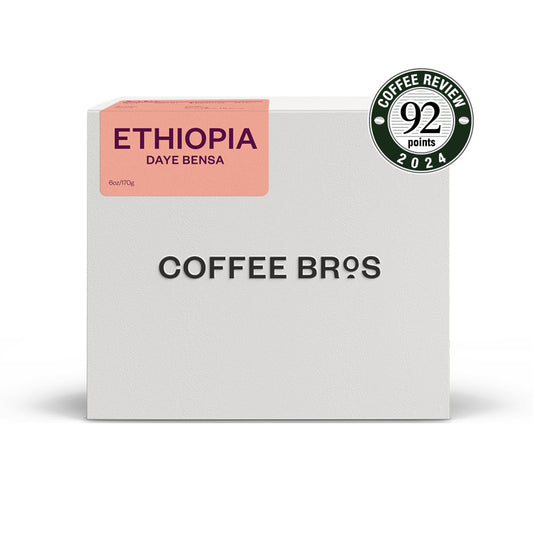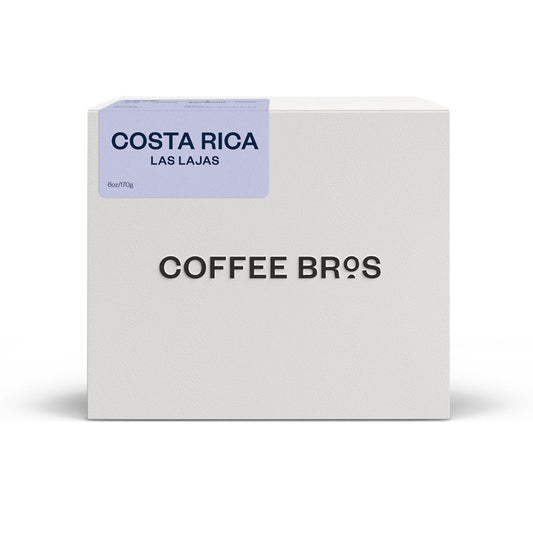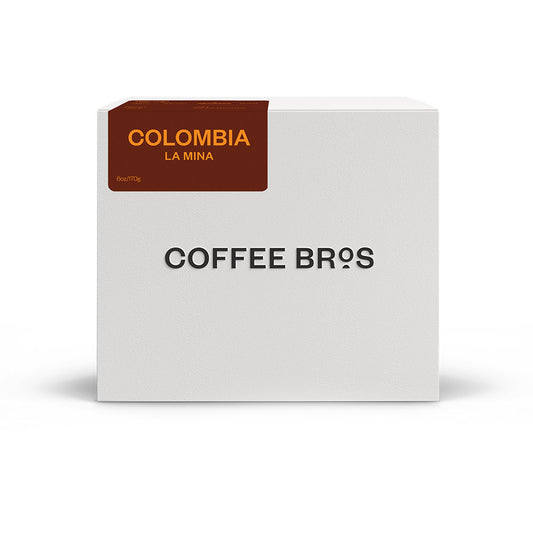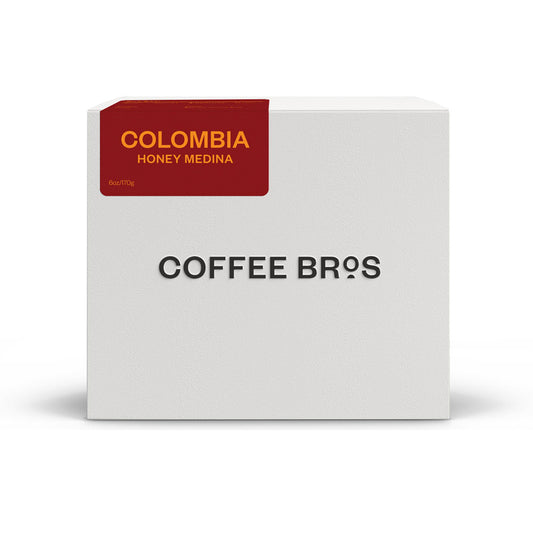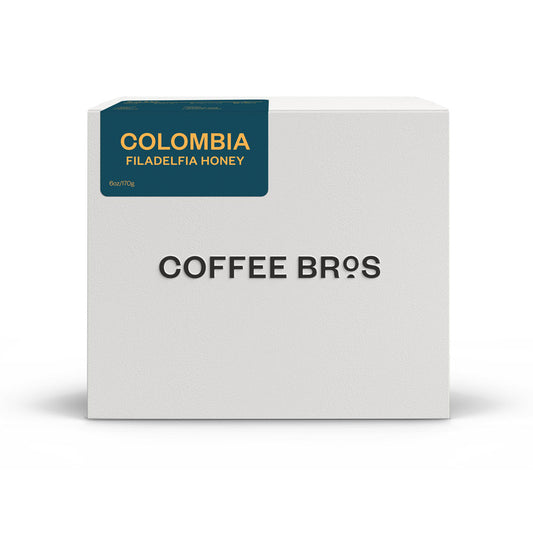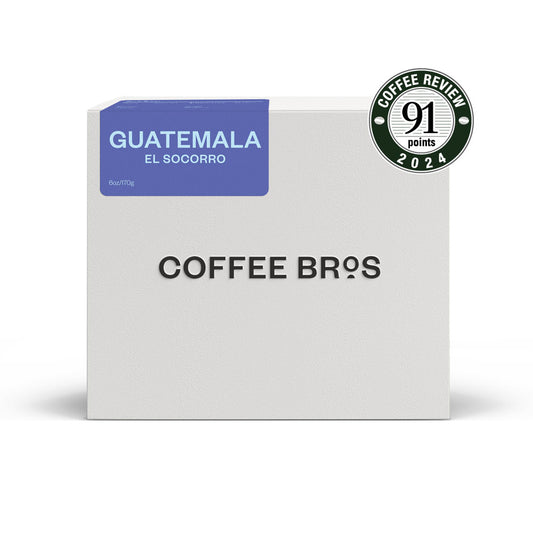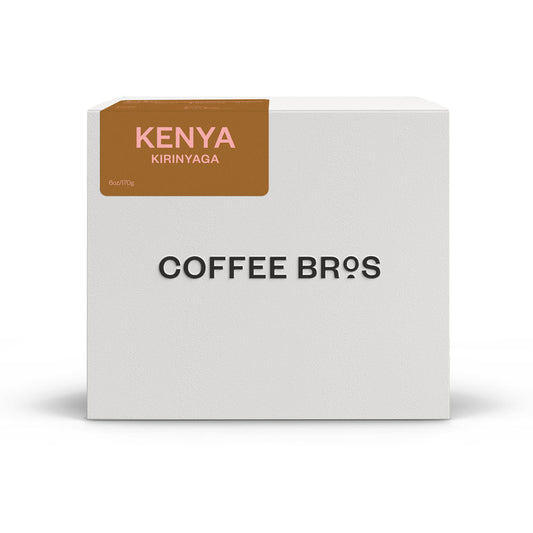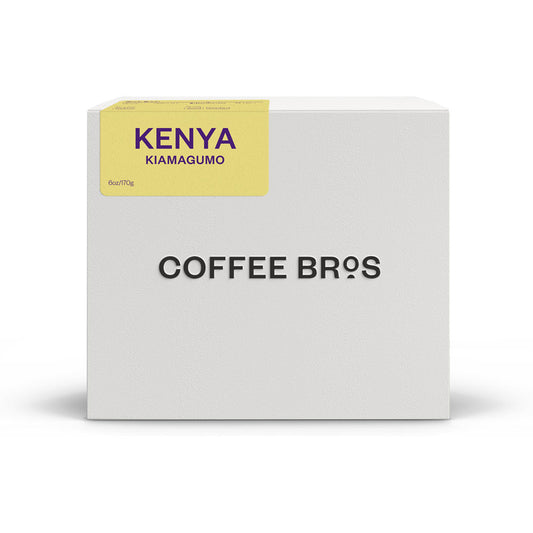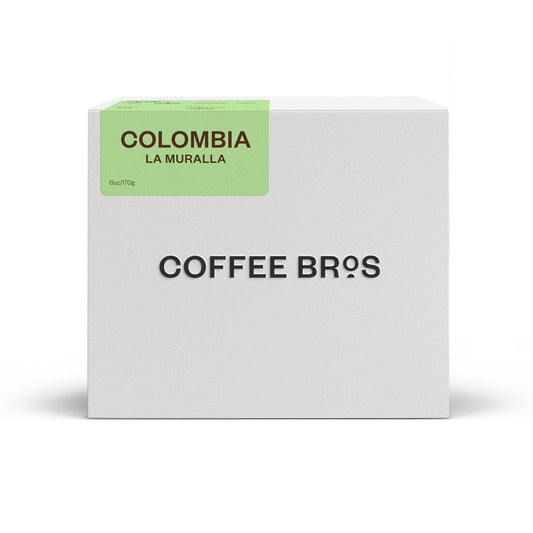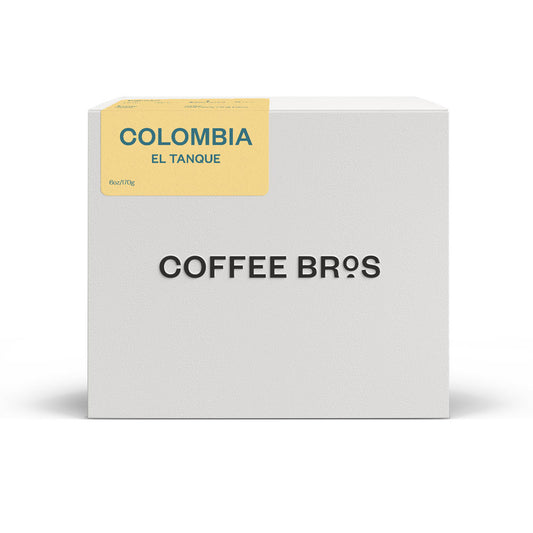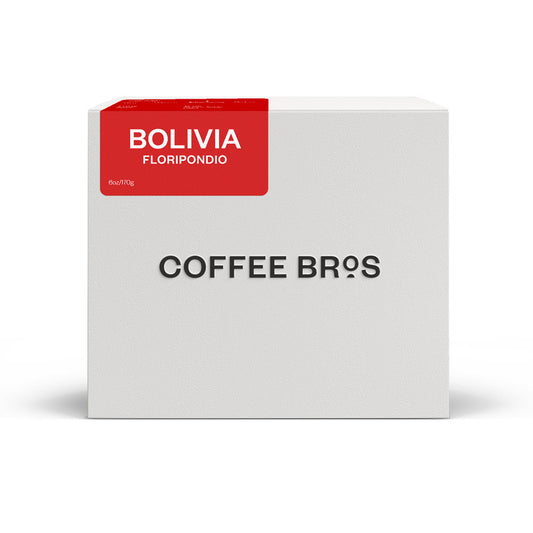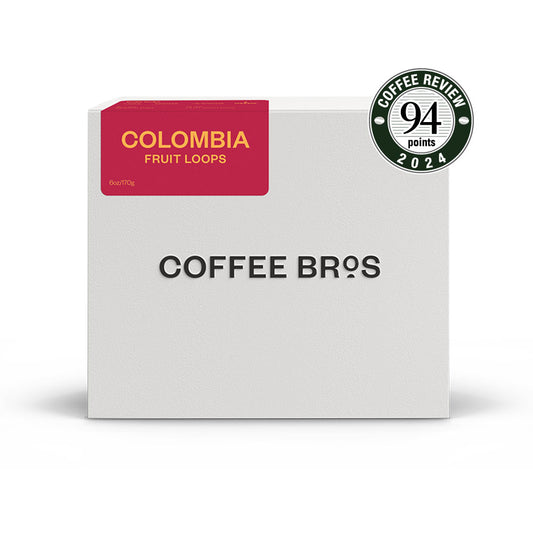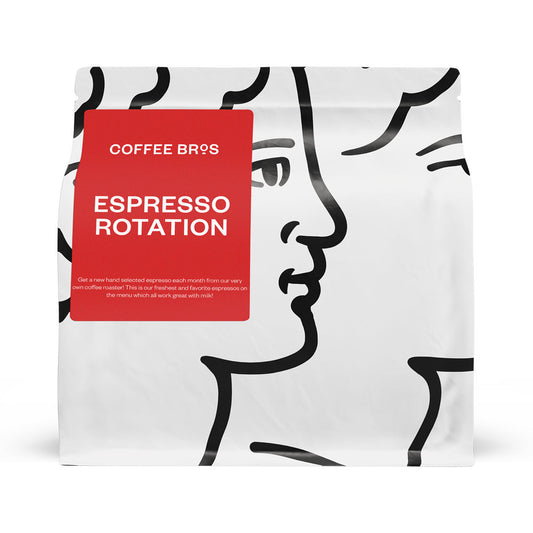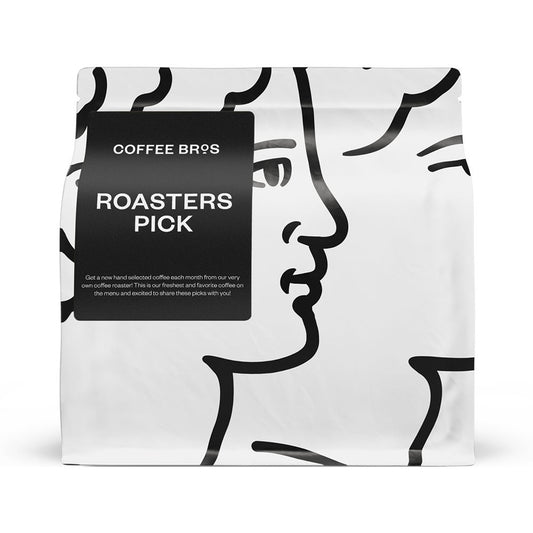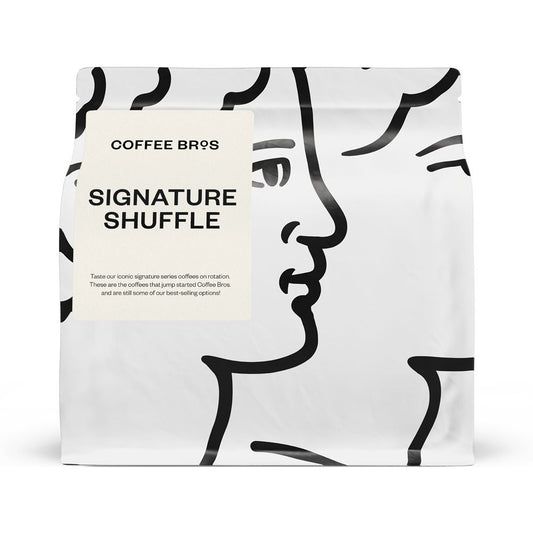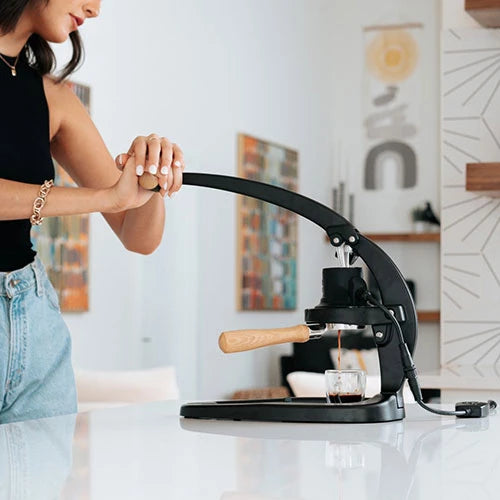Collection: Single Origin
-
Best Seller
Ethiopia | Daye Bensa | Natural
A crisp and clean light roast with brilliant fruit-forward notes from our friends at Daye Bensa
A crisp and clean light roast with brilliant fr...
Regular price From $12.85Regular priceUnit price / per -
Best SellerSold out
Costa Rican | Las Lajas | Natural
An exceptionally well-balanced coffee with winey fruit and chocolate notes
An exceptionally well-balanced coffee with wine...
Regular price From $13.40Regular priceUnit price / per -
New
Colombia | La Mina | Natural
A well-balanced honey coffee that works exceptionally well as an espresso
A well-balanced honey coffee that works excepti...
Regular price From $12.89Regular priceUnit price / per -
New
Colombia | Honey Medina | Caturro Honey
A well-balanced honey coffee that works exceptionally well as an espresso
A well-balanced honey coffee that works excepti...
Regular price From $12.89Regular priceUnit price / per$26.99Sale price From $12.89Sale -
New
Colombia | Filadelfia Honey | Honey Fermentation
A well-balanced honey coffee that works exceptionally well as an espresso
A well-balanced honey coffee that works excepti...
Regular price From $15.99Regular priceUnit price / per -
New
Guatemala | El Socorro | Pacamara Natural
A crisp and clean light roast with brilliant fruit-forward notes from our friends at Daye Bensa
A crisp and clean light roast with brilliant fr...
Regular price From $12.89Regular priceUnit price / per -
Sold out
Kenya AA | Kirinyaga | Washed
An adventurous coffee with notes of plum, cocoa, and lemon
An adventurous coffee with notes of plum, cocoa...
Regular price From $12.89Regular priceUnit price / per -
Kenya Peaberry | Kiamagumo | Washed
An adventurous coffee with notes of plum, cocoa, and lemon
An adventurous coffee with notes of plum, cocoa...
Regular price From $12.89Regular priceUnit price / per -
Colombia | La Muralla | Pink Bourbon Honey
A bold, well-balanced honey processed coffee with notes of cooked apple
A bold, well-balanced honey processed coffee wi...
Regular price From $14.39Regular priceUnit price / per$29.99Sale price From $14.39Sold out -
Colombia | El Tanque | Dark Roast | Natural Process
A well-balanced honey coffee that works exceptionally well as an espresso
A well-balanced honey coffee that works excepti...
Regular price From $12.89Regular priceUnit price / per$26.99Sale price From $12.89Sold out -
Bolivia | Floripondio | Batian Natural
A Cup of Excellence-winning coffee with a clean, juicy taste with notes of orange and raisin
A Cup of Excellence-winning coffee with a clean...
Regular price From $29.99Regular priceUnit price / per$34.99Sale price From $29.99Sale -
Colombia | Fruit Loops | Gesha Washed
A lightly-roasted Gesha coffee from our partners at In Conexus with taste notes of "Froot Loops" cereal!
A lightly-roasted Gesha coffee from our partner...
Regular price $37.99Regular priceUnit price / per$39.99Sale price $37.99Sold out
Rotating Subscriptions
-
Espresso Rotation | Rotating Espresso Coffee Subscription
A bold, well-balanced honey processed coffee with notes of cooked apple
A bold, well-balanced honey processed coffee wi...
Regular price From $19.99Regular priceUnit price / per -
Roaster's Pick | Rotating Coffee Subscription
A bold, well-balanced honey processed coffee with notes of cooked apple
A bold, well-balanced honey processed coffee wi...
Regular price From $22.99Regular priceUnit price / per -
Signature Shuffle | Rotating Coffee Subscription
A bold, well-balanced honey processed coffee with notes of cooked apple
A bold, well-balanced honey processed coffee wi...
Regular price From $18.99Regular priceUnit price / per
Collections
-
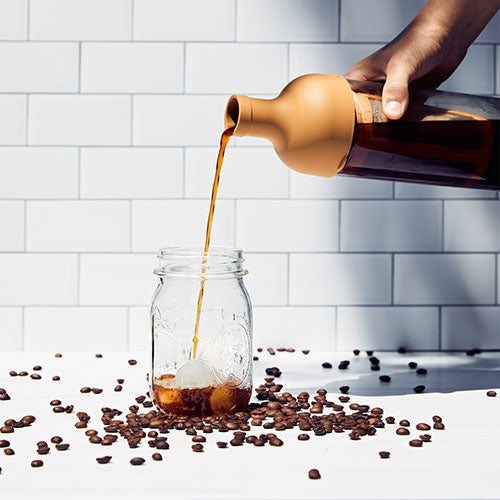
All Coffee
Experience the best specialty coffee with our selection of Signature Series, Single-origin,...
-
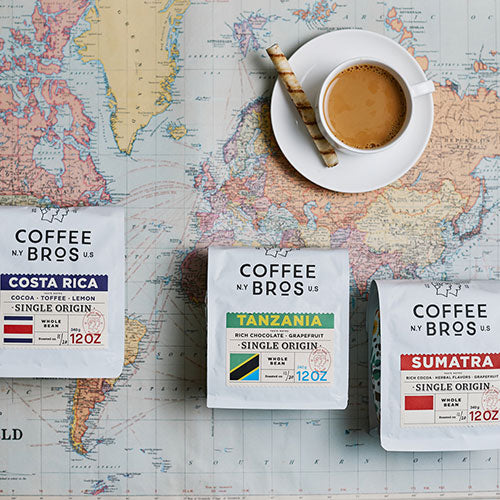
Single Origin
All of our single-origin coffees in this collection are 86+ point coffees...
-
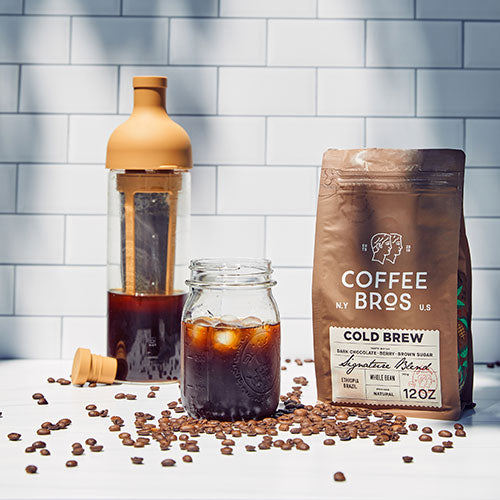
Signature Blends
Our Signature Blend coffees showcase unique flavor profiles that shine across any...
Coffee Questions
What is Single Origin Coffee?
Single-origin coffee is sourced from a single location, such
as a country, region, city, washing station, or a specific producer.
Most coffee companies use the term “Single Origin Coffee” to showcase that coffee is from a particular location; think Yirgacheffe (a central coffee-growing region in Ethiopia.)
The more specific a coffee roaster can get about the location of their coffee, the more highly desired it becomes among speciality coffee lovers. Specialty coffee consumers desire traceability (the ability to verify the accurate location of the coffee).
Single Origin Coffee vs. Blends
Single-origin coffee is sourced from a single location (country, region, city), while blends can be made of a combination of origins or different producers from the same origin.
Coffee roasters create blends for several reasons:
1. Blends allow coffee roasters to create something unique; think of their own signature recipe that no one else on the market has.
2. Coffee Blends allow coffee roasters to offer a consistent product throughout the year (like a House Blend). Blends allow roasters to rotate coffees in and out throughout the year to help with freshness and consistency, while Single-origin coffees are typically offered seasonally.
3. Finally, coffee blends help coffee roasters manage costs during a constantly changing c market. Coffee blends can help offset costs by using a slightly lower costs product with a higher-end, higher-scoring coffee.
Single Origin Coffee vs Micro-lot
Micro lots are subsections of coffee farms that may have
quality distinctions from the rest of the farm. These rarer lots of coffee are sought after by importers and roasters due to their characteristics and process differentiation from the main lots. Micro lots are priced higher because they are identified as unique from the rest of the farm. Still, they are harvested and processed separately from the main lot, substantially increasing prices.
When comparing a Single Origin to a Micro lot, a micro lot is identified down to a single section within a single producer’s farm. You cannot get more specific or traceable when it comes to micro-lot coffees.
Single Origin Coffee vs. Single Producer Coffee
Single Origin coffees refer to a specific location such as; a
country, region, city, or processing facility, while a Single Producer Coffee refers to coffee from an individual producer or farm.
Why is Single Origin Coffee Expensive?
Single-origin coffee is expensive due to its traceability (a desired attribute by coffee roasters and consumers.) A highly traceable coffee (like down to an individual producer) is usually more consistent, reliable, and often higher scoring than coffees that are not.
Prices of coffees usually go higher as they get more specific or traceable (like micro-lots or from individual producers.)
Is Single Origin Coffee Better?
Single Origin coffee is not necessarily better than a coffee blend, but often it represents a higher quality and unique product. Still, consumers and roasters seek Single Origin Coffees due to their traceability, consistency, and often more unique flavor profiles than blended coffee.
What makes Single Origin or Single Sourced coffee better than blends (products mixing coffee from multiple locations) is the product's
consistency and the coffee roaster's ability to partner with the producer
directly to improve upon or iterate on their product.
Additional Reading
-
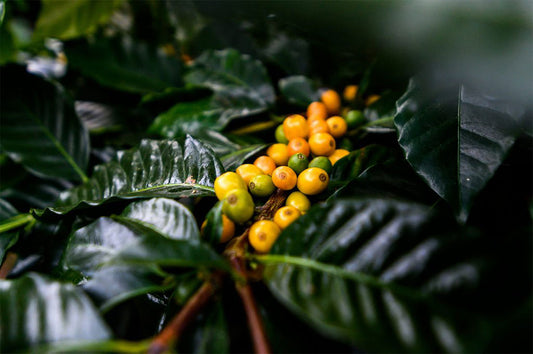
What is Specialty Coffee
Specialty coffee: a multipurpose term that defines an industry Introduction Specialty coffee has become a term representing more than the difference between commodity-grade coffee and higher-end lots. In our view,...
What is Specialty Coffee
Specialty coffee: a multipurpose term that defines an industry Introduction Specialty coffee has become a term representing more than the difference between commodity-grade coffee and higher-end lots. In our view,...
- Choosing a selection results in a full page refresh.

